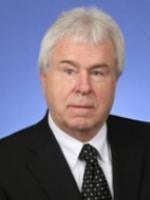Texas Attorney General Kenneth Paxton appears to not like Indian gaming. Two of the state’s three federally recognized tribes have been pursuing gaming opportunities for years, but the Attorney General’s opposition continues even in the face of a recent federal decision supporting their rights to conduct gaming.
In the way of background, it is worth revisiting the current situation. For starters, it is important to understand two things: (1) the three tribes do not share equal legal status and (2) earlier this year, the Texas Legislature ostensibly proposed to “level the playing field” so that all three would have an equal gaming opportunity. The key word is “ostensibly.”
The three tribes are (1) the Texas Band of Kickapoo Indians in Eagle Pass, which is 143 miles southwest of San Antonio on the Rio Grande River and far from the Gulf Coast, (2) the Ysleta del Sur Pueblo Tribe – also known as the Texas Tigua Tribe – located near El Paso, which also is far from the Gulf Coast, and (3) the Alabama-Coushatta Tribe of Livingston, 74 miles north of Houston and 76 miles northwest of Beaumont, and clearly much closer to the Gulf Coast and the hundreds of thousands of tourists annually traveling to the Gulf. Each of these tribes was recognized by a special Act of Congress.
The Kickapoo Tribe was recognized by Congress through the Act of January 8, 1983, a federal law which imposed no restrictions on the Tribe’s right to conduct gaming. The Alabama-Coushatta Tribe and Texas Tigua Tribe were recognized through the Act of August 18, 1987, which restricted any tribal gaming to gaming activities that are lawful under Texas state law. The distinction between the Kickapoo Tribe gaming opportunity and that available to the Alabama-Coushatta Tribe and Texas Tigua Tribe has become a legal battleground, and the Attorney General is leading the opposition to any new gaming development by the Texas Tigua Tribe.
Texas law has never specifically authorized gaming and, accordingly, the Texas Tigua Tribe has not been able to conduct gaming because of the language in the Tribe’s 1987 Restoration Act requiring state laws specifically authorizing gaming.
The Texas Tigua Tribe’s efforts to secure gaming are summarized in the following timeline:
-
1987: The United States Supreme Court rules in California v. Cabazon Band of Mission Indians that Indian tribes have rights to conduct gaming that is not prohibited by state criminal laws so long as the gaming activity occurs on tribal lands.
-
1988: Congress passes the Indian Gaming Regulatory Act (“IGRA”), which permits casinos on reservations.
-
1990: Tribes in other states begin opening casinos.
-
1991: Texas voters approve a state lottery.
-
1993: Texas Tigua Tribe wins federal court permission to open a casino. Speaking Rock Casino opens.
-
1998: Texas Gov. George W. Bush asks Texas Attorney General to close the casino.
-
1999: Texas Attorney General files suit against the Texas Tigua Tribe.
-
2002: Federal court rules against the Texas Tigua Tribe. Speaking Rock Casino closes February 12.
The Texas Tigua Tribe gaming issue has been in the courts continuously since 2002, and the Tribe’s attempts to secure gaming approval have been successfully resisted by the State in a number of federal court rulings.
In the meantime, the Alabama-Coushatta Tribe has been in the same state of “gaming limbo” since it also was recognized by the 1987 Restoration Act and is subject to the same “lawful under Texas law” gaming limitation used to oppose the Texas Tigua Tribe’s efforts. However, the landscape changed in late October with the publication of a decision by the Department of the Interior and the National Indian Gaming Commission that both tribes have a legal right under federal law to operate Class II gaming facilities on tribal lands. IGRA established classes of gaming that tribes can conduct on Indian lands. Class II gaming is defined as bingo, as well as pull-tabs, lotto, punch boards, tip jars, instant bingo, and other games similar to bingo.
While the October decision has been hailed as a major turn in the Tribes’ favor, the Attorney General sees it as a continuum of tribal efforts to conduct illegal gaming. This position was stated in a recent court filing in response to a request for comments from the federal court in which the Texas Tigua Tribe legal battles have been waged. The Texas Tigua Tribe did submit two documents in support of the proposed gaming, and the federal government declined the court’s invitation to submit an amicus curiae brief. The Texas Attorney General continued his strong opposition to the decision.
The battle lines have been drawn for a number of years, as shown by the Texas Tigua Tribe timeline. In light of the statutory restriction in the 1987 Restoration Act, the Tribes continue to face a difficult fight. However, the federal decision is a new tool in the Texas Tigua Tribe’s legal arsenal despite the federal government’s reluctance to defend it at this time. Nonetheless, there is a legal precedent for the tribal position in the language of the Cabazon decision (allowing tribal gaming that is not prohibited by state law). The obstacle confronting the tribe is reconciling the Restoration Act’s language with the Supreme Court ruling.




 />i
/>i
